Johnny Hines plays a rich swell who takes up a bet that he can make $10,000 without using a dime of his personal fortune. Chaos ensues when he poses as a boxer and ends up building a suburb from scratch.
Home Media Availability: Released on DVD
Share it fairly but don’t take a slice of my pie…
Just for fun, I decided to cover a completely random silent film from my “not yet watched” stack and this 1923 comedy called Luck was the disc that I grabbed. I purchased it because I liked Johnny Hines in his role as the resident comedy relief at the World studio and because it is one of very few films featuring Violet Mersereau available to the general public. (Violet is not super famous even among hardcore nerds but I did taste test the sandwich she inspired.)
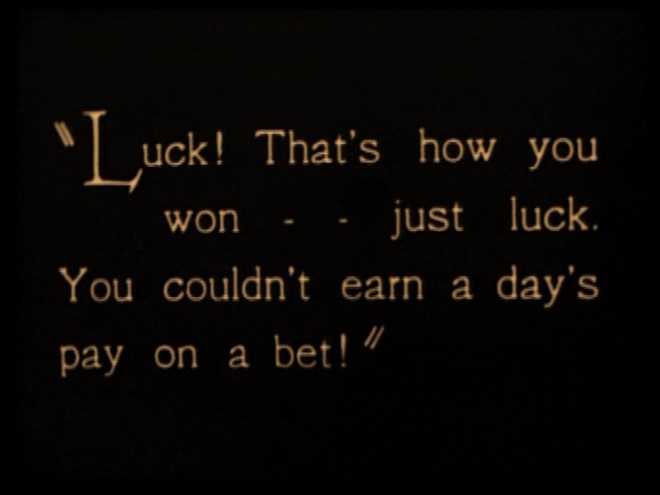
So, sold! Let’s do this thing!
The concept of Luck is a pretty classic comedy setup: the hero, Bob Carter (Johnny Hines), makes a bet that he can earn $10,000 in a year. (That’s about $150,000 in modern money.) He isn’t allowed to use his own fortune and stands to win or lose $100,000 depending on the outcome.

Bob sprints off and he ends up being mistaken for a boxer and winning a match against the local champion. In the midst of all these adventures, he catches the eye of Sylvia Templeton (Violet Mersereau), the local heiress, and makes an enemy of Alan Crosby (Edmund Breese), the owner of the newspaper.
Bob decides to go in for real estate, specifically building a new suburb in a prime location. He finances his project by settling a libel suit brought about because Crosby published an item accusing him of being an impostor. Meanwhile, character actors like Flora Finch, Charles Murray and Polly Moran gallivant about as the new residents of the even newer suburb.
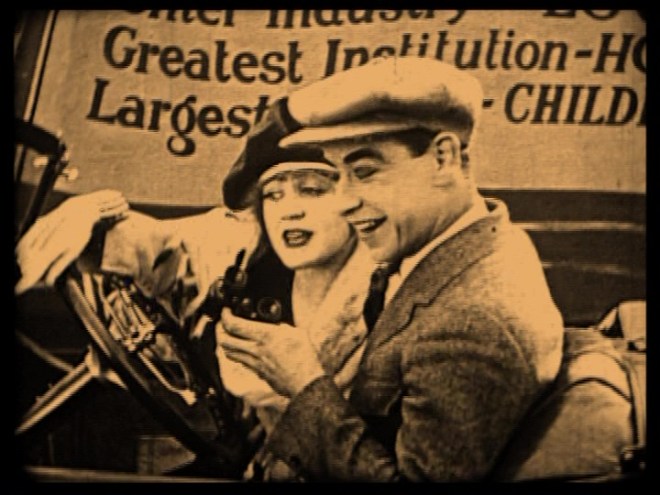
I think everyone can guess where this is going and you’re right. I’ll be spoiling the rest of this film in my review and now that the warning has been issued, let’s dig in.
We’ll get one thing out of the way first: I actually rather enjoy exaggerated and outrageous comedies that rely on coincidences, superstition and, well, luck. In fact, the zanier the better in my book. As someone fairly familiar with this particular comedy device, I feel I am in a good position to say that Luck kind of stinks and for reasons other than the awful blackface gags.
(And for real context, do check out Returning the Gaze: A Genealogy of Black Film Criticism, 1909–1949 by Anna Everett and it will soon become clear that blackface in film was condemned from the start.)
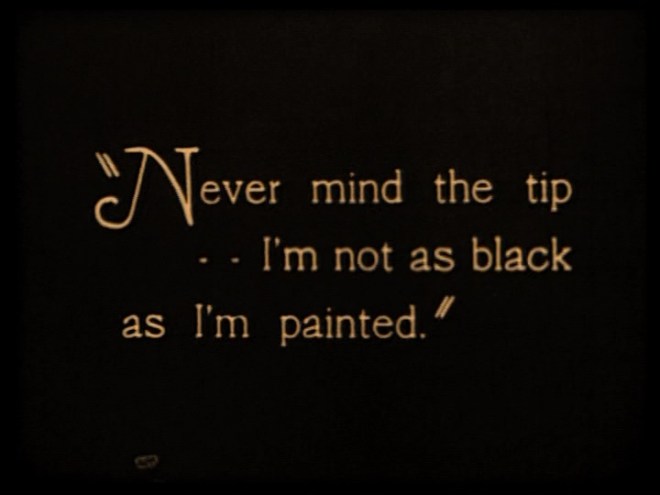
We’ll start the dissection with the setup. When starting with a character born on third base, you need to make sure that he has other disadvantages to compensate or you will lose any suspense you might have had. For example, Douglas Fairbanks in When the Clouds Roll By is plagued by his own paranoid superstitions and the fact that he is the target of a mad scientist’s thought experiment. Sure, he is clearly well off and has connections in the financial sector but the fellow clearly has more than his share of problems.
Max Linder is similarly rich and successful in Seven Years Bad Luck but he is also superstitious and when he thinks he broke a mirror, he goes to mad lengths to avoid the consequences. And handsome Richard Dix has the opposite problem when he wins the car of his dreams and foolishly scoffs at rumors that it is cursed in The Lucky Devil. We can all see where THAT is going to go.
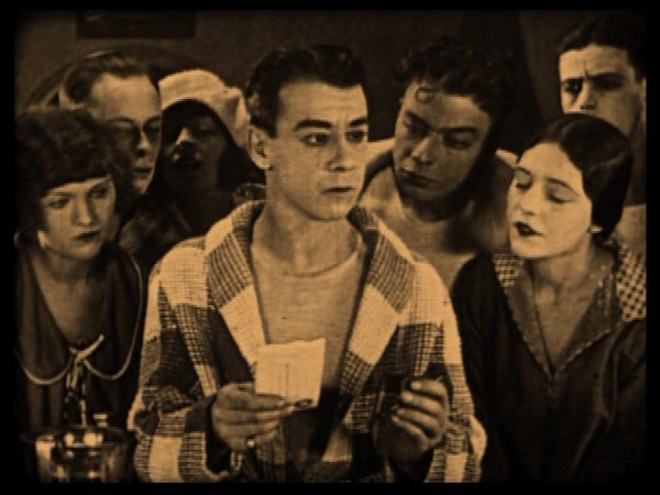
In Luck, Johnny Hines is rich and maybe a little lazy but has no real problems in his life otherwise. This might have still been okay if the screenplay hadn’t messed up on step two.
In this sort of picture, the bargain struck by the protagonist has to either lead to completely unintended and potentially disastrous consequences or it has to be something completely bonkers that was created by another character and forced on the main character. It’s not as much fun to see the main character flippantly make a huge bet, take on a big challenge and then leap over hurdles four inches tall in order to achieve it.

In Seven Keys to Baldpate, George M. Cohan bets that he can write a popular novel in a set period of time and goes off to a secluded retreat, not realizing that criminal shenanigans are afoot there. It seemed like such a simple bet but the story keeps piling on complications. The picture isn’t perfect but the basic architecture is sound.
In Oh Doctor! and Feel My Pulse, the well-heeled main characters are hypochondriacs whose condition gives them more adventure than they bargained for. Oh Doctor! has Reginald Denny’s love for Mary Astor understandably turn him into a daredevil in his attempts to impress her and Feel My Pulse kicks off with Bebe Daniels escaping to a health resort that is actually a cover for William Powell’s bootlegging operation.

Further, in order to make the film really work, there has to be a moment when the hero is near failure. Luck does have a looming deadline with the hero $1,000 short but we aren’t shown much of his money raising efforts. If we saw him desperately trying to sell homes and always falling short, there would have much more suspense near the end of the picture. And the climactic mining accident is nothing more than a coarse cliffhanger designed to instantly sweep away all obstacles in one fell swoop.
A comedy of this type has to remain true to its premise, whatever that premise may be. In various iterations of Brewster’s Millions, the hero must find a way to get rid of scads of cash and the fun is watching his increasing desperation when he realizes just how hard this seemingly pleasant and easy task is. Luck’s premise is that Hines cannot use a dime of his own money but he sails into town touting his family name and using it to open financial and social doors, which surely must be considered an asset under the terms of the contract.
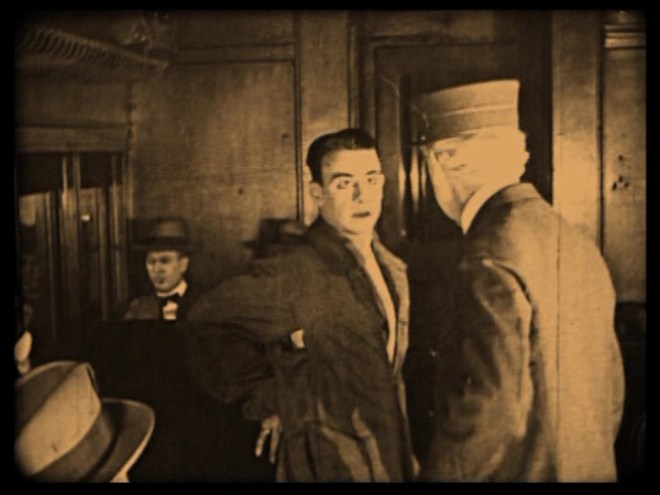
Finally, the premise and the title of the film is, well, luck but Hines has very little of it either way. In films of this kind, the comedy works best with the outrageous good fortune comes increasingly bizarre packages, otherwise, you risk losing suspense and audience sympathy. For example, the trunks miraculously surviving a volcanic explosion in Joe vs. the Volcano will never not be hilarious and wonderfully weird. But Hines gets by on mundane things like his family name, the stupidity of his romantic rival (which isn’t really luck) and by swindling his way out of paying railroad fare and cheating a homeless man out of his clothes in a game of dice. Luck? More like Ethics? or perhaps Guillotine?
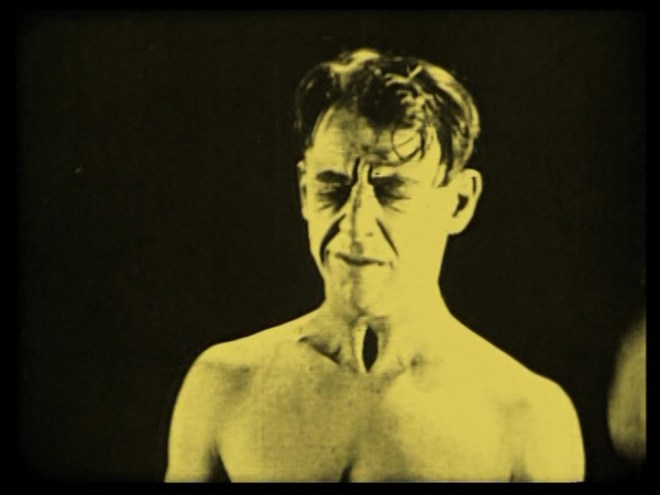
Plus, let’s face it, misfortune is much more interesting than wild good fortune. Cinematic luck should have a sting in the tail, a monkey’s paw to be truly compelling.
But now let’s look at the cast. Violet Mersereau, who I was quite curious about, turns out to be charming in a somewhat dull role. I would very much like to see some of her work for Universal, which looks far more spirited. Hines seems to have lost something in his transition from World and he doesn’t really have enough oomph to be leading man instead of character actor. You might recognize Edmund Breese as Richard Barthelmess’s brother in Tol’able David but, like Mersereau, he is saddled with a fairly dull character who is basically the bad guy because someone had to do it.

What it comes down to is that I understand what Luck was trying to accomplish but it has been done so much better so often before and after that I don’t actually see the point in tracking this one down unless you are a diehard Johnny Hines fan.
Where can I see it?
☙❦❧
Like what you’re reading? Please consider sponsoring me on Patreon. All patrons will get early previews of upcoming features, exclusive polls and other goodies.
Disclosure: Some links included in this post may be affiliate links to products sold by Amazon and as an Amazon Associate I earn from qualifying purchases.
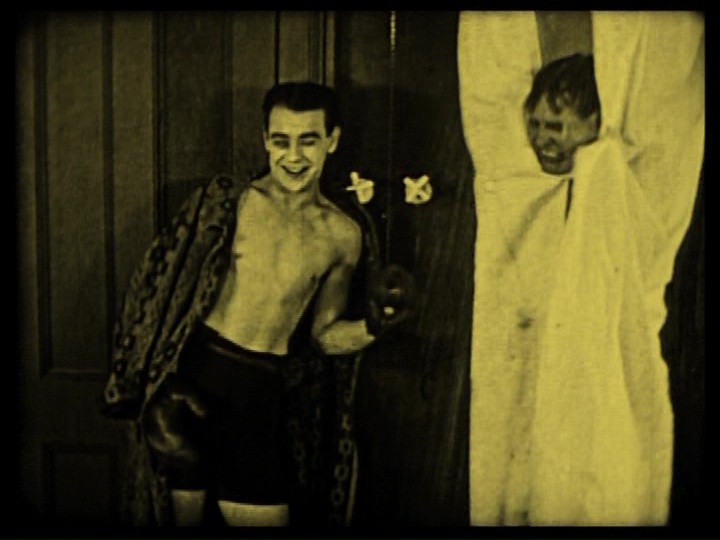
I saw “Luck” when Grapevine released it, and I still have it on my shelf, although I’m unlikely to see it again. I really do like Johnny Hines, and while he was hardly innovative, he was extremely personable on screen and often very funny. But “Luck” is pretty awful, and just seems to be a series of short episodes strung together, with the humour and narrative forced, and Hines not allowed to be his charismatic self. Obviously the blackface gags are really quite shocking to modern audiences, but they are the least of the film’s problems.
I checked out the Grapevine disc on Amazon, Fritzi, to findthat not only is it currently unavailable, but that the leading man’s name is spelled “Johhny”!!
Thank you for your recommendation. I think Johnny Hines is uunderrated and am happy to hear that Violet Mersereau has a surviving film that is available for viewing.